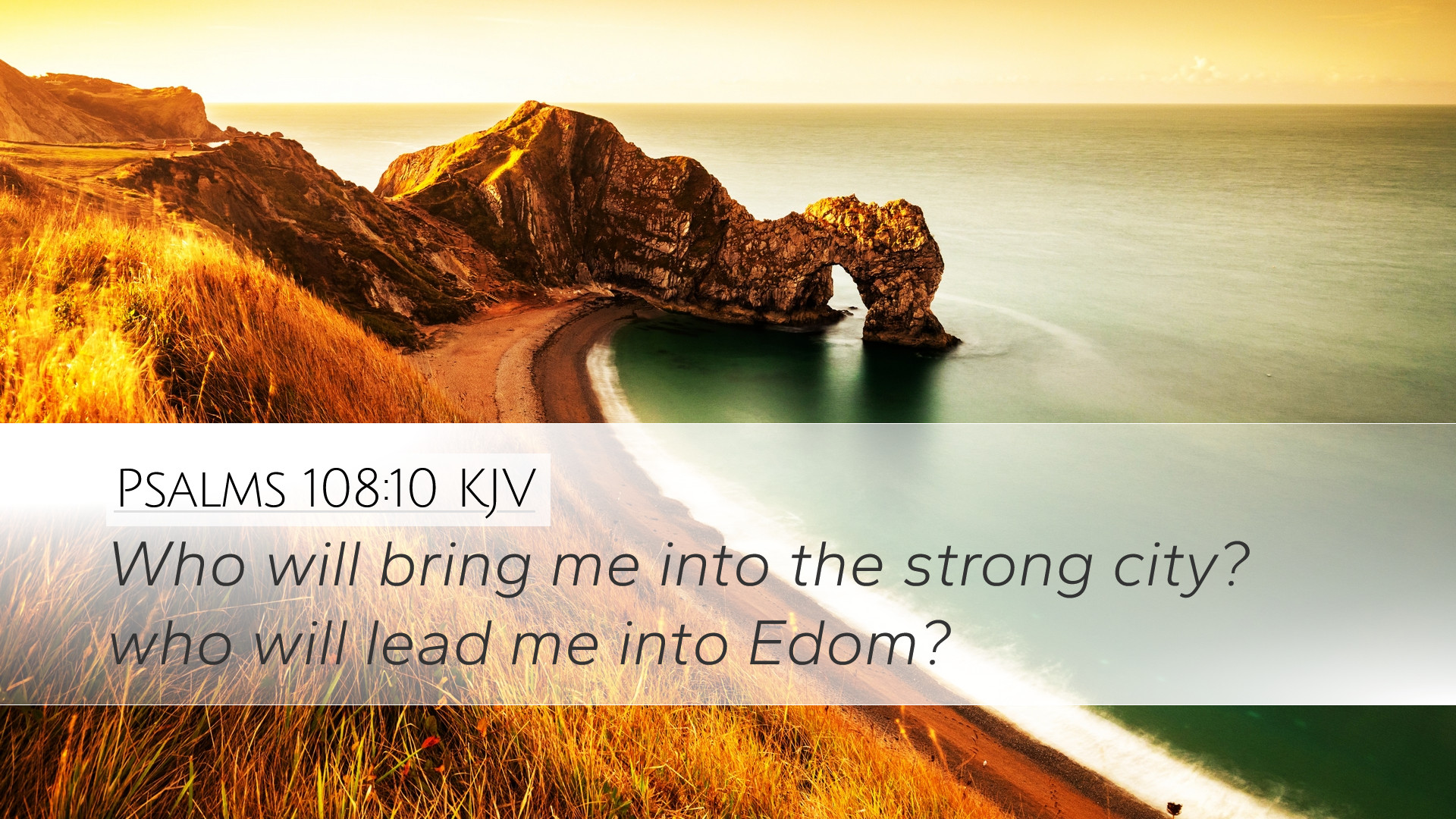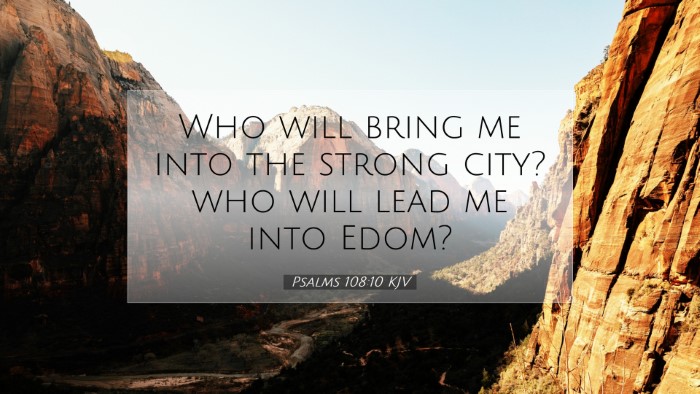Psalms 108:10 Commentary
Psalm 108 is a communal hymn, reflecting the nation’s struggles and their reliance on divine intervention. In verse 10, the psalmist poses a poignant question that resonates with both personal and communal experiences of warfare and spiritual battles.
Text of Psalms 108:10
"Who will bring me into the strong city? Who will lead me into Edom?"
Introduction to the Verse
This verse serves as a call to arms, framing the psalmist's urgent need for clarification on who will aid in attaining victory over formidable foes. The “strong city” symbolizes bastions of opposition, while “Edom” represents the historical and persistent enmity faced by Israel.
Contextual Insights
Within the larger context of Psalm 108, verses 1-5 express praise and a declaration of trust in God, while verses 6-13 evoke themes of military conquest and divine assistance. The call for help reflects the dire situations faced by the Israelite people and the necessity of divine intervention.
Exegesis of Key Terms
- Strong City: This term indicates a fortified place, often representing a stronghold of the enemy and a location of significant struggle.
- Edom: Historically, Edom was known for its fierce opposition to Israel. The mention of Edom highlights the specific adversary that required God’s help to conquer.
Commentary Insights
Matthew Henry
Matthew Henry emphasizes the earnestness of the cry for help. He notes that the psalmist's question reflects a deep awareness of utter dependence on God. Henry interprets the “strong city” as illustrating both spiritual and physical strongholds wherein believers might find themselves overwhelmed. The call for intervention signifies the human condition of recognizing one's limitations and the need for divine strength.
Albert Barnes
Albert Barnes provides a perspective on the geographical and historical significance of Edom. He points out that Edom had frequently been a source of torment for the Israelites and that the query reveals a longing for deliverance. Barnes articulates that God’s guidance into the “strong city” represents the desire for God’s leadership in overcoming the challenges that arise in life and the pursuit of holiness amidst struggles.
Adam Clarke
Adam Clarke offers a practical application of the verse, noting that it illustrates humanity's quest for a leader in times of trouble. Clarke emphasizes that through prayer and supplication, believers may seek God's guidance to navigate difficult situations. He suggests that the verse can serve as a template for believers today when facing their own “strong cities” in life, recognizing the value of seeking divine assistance in achieving victory.
Theological Reflections
Theologically, Psalms 108:10 encapsulates crucial truths about human reliance on God in confronting adversities. The longing for leadership reflects the believers' desire for wisdom, direction, and strength through God. This need for divine assistance is universal and timeless, providing a model for prayer and supplication.
Practical Applications
- Dependence on God: This verse serves as a reminder that believers must continually seek God’s strength in their battles.
- Community Seeking Guidance: Just as the psalmist questions for communal help, Bible scholars can highlight the importance of community in seeking God's guidance in spiritual matters.
- Confronting Challenges: The imagery of strong cities can be employed in sermons to illustrate various life challenges, encouraging reliance on God's deliverance.
Conclusion
Psalms 108:10 holds rich theological and practical insights into the nature of human struggles and the cry for divine assistance. By examining the interpretations of foundational commentaries, pastors, students, and theologians can find meaningful applications in both personal faith and communal worship.


